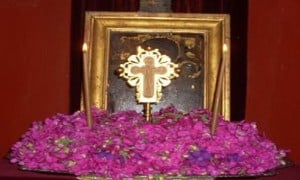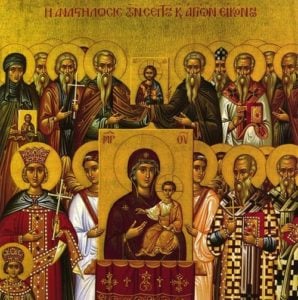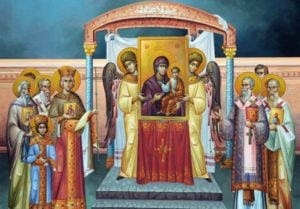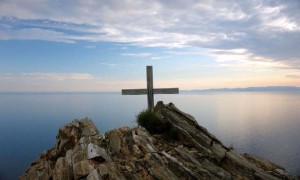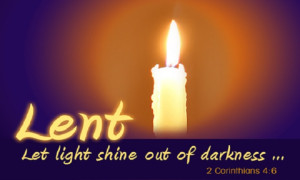Great Lent, the Welcome Time – Ι
27 February 2023“Behold the welcome time,
Behold the time of repentance;
Let us reject the works of darkness
and take up the weapons of light”.
Apostichon at Vespers on the Sunday of Cheese-Fare.
Time has always had a special significance for people, but from a Christian point of view it has acquired incomparably greater value. Time is now sacred. It’s been sanctified, because our Lord entered it through His incarnation and lived within it as God and Human. Christ’s coming into the world makes it clear that the “fullness of time has come” (Gal. 4, 4), that “the time has been fulfilled and the kingdom of God is at hand” (Mark, 1, 5).
We Christians live in a new age, which was inaugurated by the advent of Christ and which will endure until His glorious return. The time in which we’re living is that of the Church. It’s the time during which we’re struggling to respond to the call God has made to us to bring about our salvation. We’re preparing to welcome in the Day of the Lord; to see the full manifestation of the Kingdom of God; to pass from the present age into the future.
The sacred nature of time is also demonstrated by our everyday Church life. The Church sanctifies historical time, transforms it. Natural time becomes liturgical time. At any given moment, the Church is linking the time of human life with the mystery of salvation. It makes the fact of salvation always a topical issue, present in historical time.
These thoughts help us to understand more fully the words of the apostichon:
“Behold the welcome time,
Behold the time of repentance;
Let us reject the works of darkness
and take up the weapons of light”.
Here we are at the threshold of Great Lent, the most sacred period of time in the Church’s year. The hymnographer takes the words of Saint Paul [“Behold the welcome time, Behold the time of repentance” (II Cor.6, 2); “Let us reject the works of darkness and take up the weapons of light” (Rom. 13, 12)] and applied them to this sacred period which opens its gates tomorrow [the Monday of first week].
A.
First of all, Great Lent is a welcome time. Welcome means fitting, appointed. And the welcome time, as Saint Paul means it, is the time of grace, the time during which God receives us, hearkens to us and saves us. It’s the time during which people have the chance to fight for and win their salvation.
And this time, which began with Christ’s coming into the world, with people’s redemption through the cross and the resurrection and the descent of the Holy Spirit, will endure until His second coming. Whereas the time after the Lord’s glorious return is the time of judgement and recompense.
Basil the Great writes: “ ‘Now the time is welcome’ says the Apostle, ‘now is the time of salvation’. This is the age of repentance, while that is the one of recompense; this is the one of labour, that is the one of remuneration; this is the one of patience, that is the one of solace. Now, God is the helper of those who are returning from the path of evil; then, He is a dread and unerring examiner of human deeds and words and thoughts. Now, we enjoy His patience; then, His righteous judgement, when we arise, some to eternal damnation and others to eternal life, each according to his actions”.
But for each person, the welcome time is very brief. It lasts only as long as our life here on earth. It begins on the day of our birth and goes on until the hour of our death. As Saint John Chrysostom puts it: “as long as we’re in the pit of this life, as long as we’re working in the vineyard, as long as the eleventh hour hasn’t come”, the eleventh hour being the last opportunity, just before our death, to repent and conform to the will of the Lord [or, as the well-known English verse has it, “Betwixt the stirrup and the ground, mercy he sought and mercy found”].
So the time is welcome, the time until the glorious return of the Lord.
So the time is welcome, the time of the earthly life of each person.
Finally, the time is welcome, Great Lent.
If, as Christians, we fight the good fight of the faith throughout the years, how much more should we do so at this sacred time.
If we always have a duty “with fear and trembling” as Saint Paul puts it (Phil.2, 12) to work at our salvation, then we must do so even more carefully, with even greater zeal, now in Great Lent.
This is precisely what the divine hymns for Matins tell us on this day:
“The arena of the virtues has been opened. Let all who wish to struggle for the prize now enter, girding yourselves for the good fight of the fast; for those who strive lawfully are justly crowned”. (Sticheron 2 at Lauds).
(Το Be Continued)








